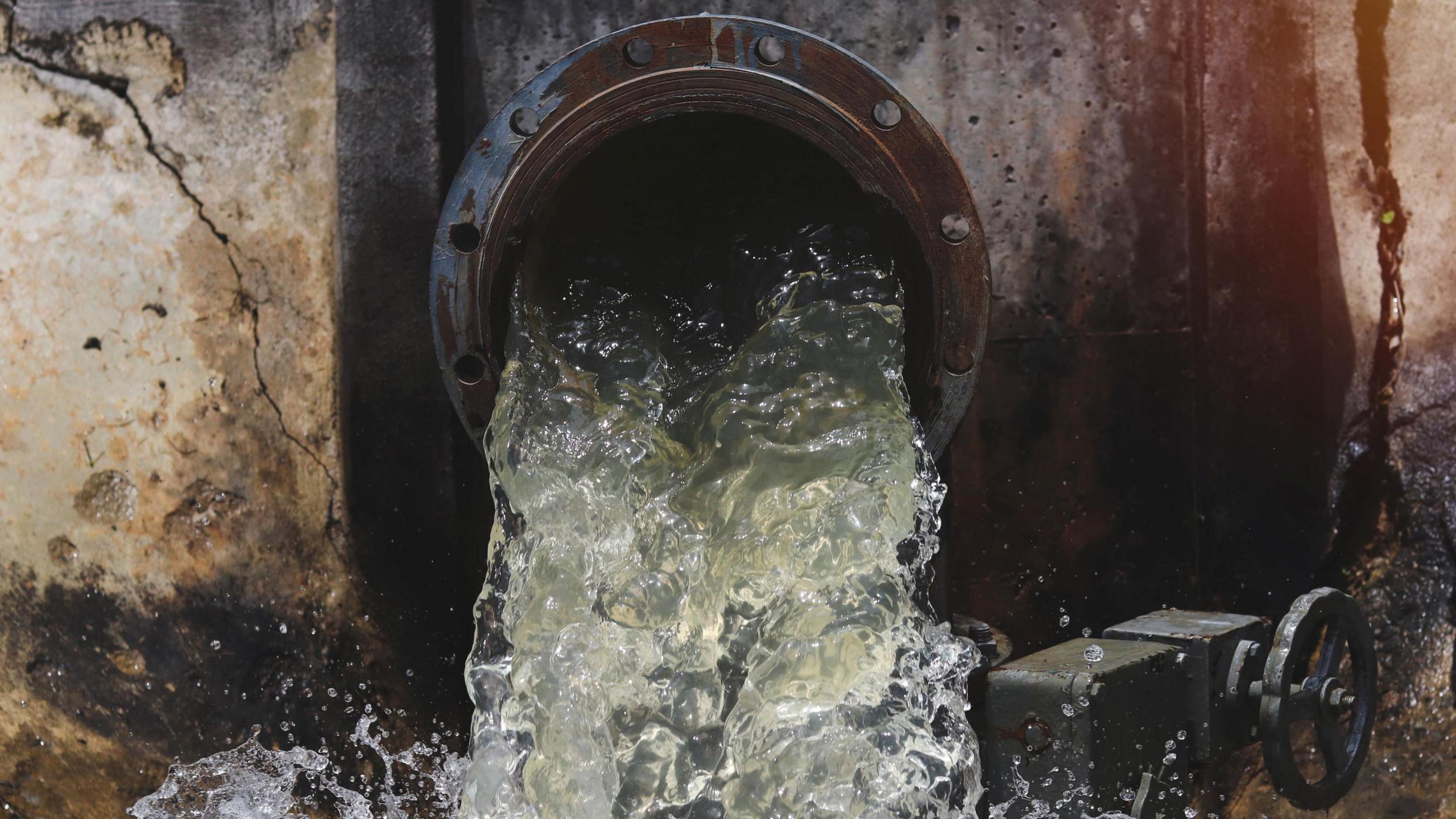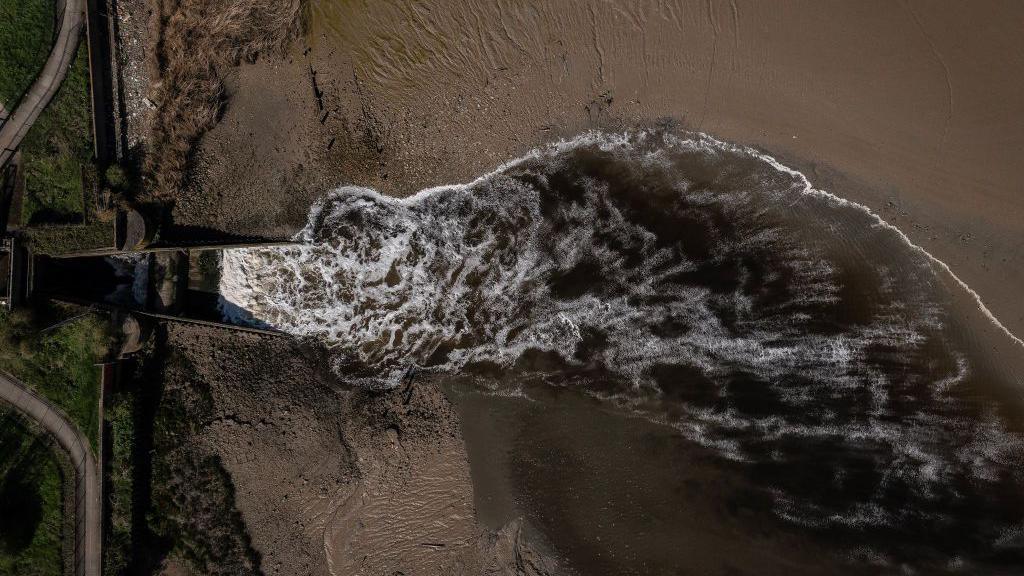Water firms could be sued over sewage after ruling

- Published
Water companies could face a "flood" of legal challenges over sewage discharges, lawyers have said, after a landmark Supreme Court ruling.
On Tuesday, seven justices at the UK's highest court ruled that the Manchester Ship Canal Company is able to sue United Utilities over the alleged release of raw sewage into the canal.
Speaking to the BBC, one lawyer said owners of adjacent waterways or even members of the public could bring claims against other utility companies as a result.
Environmental charities said the ruling was good news.
It comes at a time when water companies have been under significant financial pressure and scrutiny for unauthorised discharges of waste.
The panel of judges found that the Manchester Ship Canal Company was entitled to bring a nuisance or trespass claim for compensation over the release of "untreated foul water".
It comes despite previous rulings to the contrary in both the High Court and the Court of Appeal, which led to the private company's appeal.

Sewage is discharged from overflow points across England
There are about 100 United Utilities outfalls along the canal, where treated waste is released from the sewerage network.
Raw sewage is also dumped when the system is operating over capacity, something the judges said could be avoided if the firm "invested in improved infrastructure and treatment".
A lengthy legal battle took place between the canal company, owned by the Peel Group, and United Utilities.
The water provider argued that only regulators could take action over the spills, with the original 1991 act that privatised the sector providing it with protection.
But Paul Greatholder, partner at law firm Russell Cooke, said that the ruling on Tuesday meant the "floodgates are open".
"This could bring a range of potential claims from either the owners of adjacent waterways, or even from members of the public who have been made unwell as a consequence," he said.
Emily Nicholson, partner at law firm Mishcon de Reya said: "If millions of copycat claims then spring up, that will be a reflection of the utility companies' failures rather than the failure of the courts or legal system."
She said that those affected by any failures, such as swimmers, fishermen and environmental organisations, now at least have a route to seek redress.
Mr Greatholder also suggested that the Supreme Court had put down a "marker" for water utility companies in claiming that issues could have been avoided if more investment had gone into improving the canal's infrastructure.
"No doubt the same could be said of all water companies. Thames Water has spent billions of pounds on a ‘supersewer’ running through London to try to mitigate just this sort of issue," he added.
Water firms including Thames Water have come under significant scrutiny over their environmental records in recent months.
Recent BBC analysis found that every major English water company had reported data suggesting they've discharged raw sewage when the weather is dry - a practice which is potentially illegal.
On Tuesday, United Utilities said it "understood and shared" concerns about the need to improve, and pointed to a £3bn investment plan aimed at cutting pollution by improving infrastructure.
The Environmental Law Foundation, a charity which intervened in the Supreme Court hearing in March, welcomed the ruling.
Its co-director Emma Montlake, said: "Our water environments have been regularly polluted with untreated sewage, water biodiversity denuded and degraded with impunity by private water companies.
"A national scandal doesn't come close to describing what we have put up with. This is a glad day for environmental justice, not just for the public, but for nature."
Some have pointed out however, that this could pose another big challenge for utility companies, when some already struggling under huge debt piles.
Recently, additional powers were granted to the Environment Agency to issue unlimited fines, with industry sources telling the BBC that "the combination of fines and potential private lawsuits could make the difference between firms being able to operate and going under."
They also expressed concern over what may happen to any damages awarded to private companies or individuals, in contrast with when regulators issue fines and that money raised is returned to customers.
Sources close to the watchdog Ofwat said that the ruling would not affect their interim decision on what water companies are allowed to charge customers from next year, which is due out next Thursday.
But they added that they could imagine that water companies may make an argument that an increase in claims against them would be an additional cost they would need to make provision for - pushing up their costs and ultimately consumer bills.
The final decision on what companies can charge next year is not due until December.